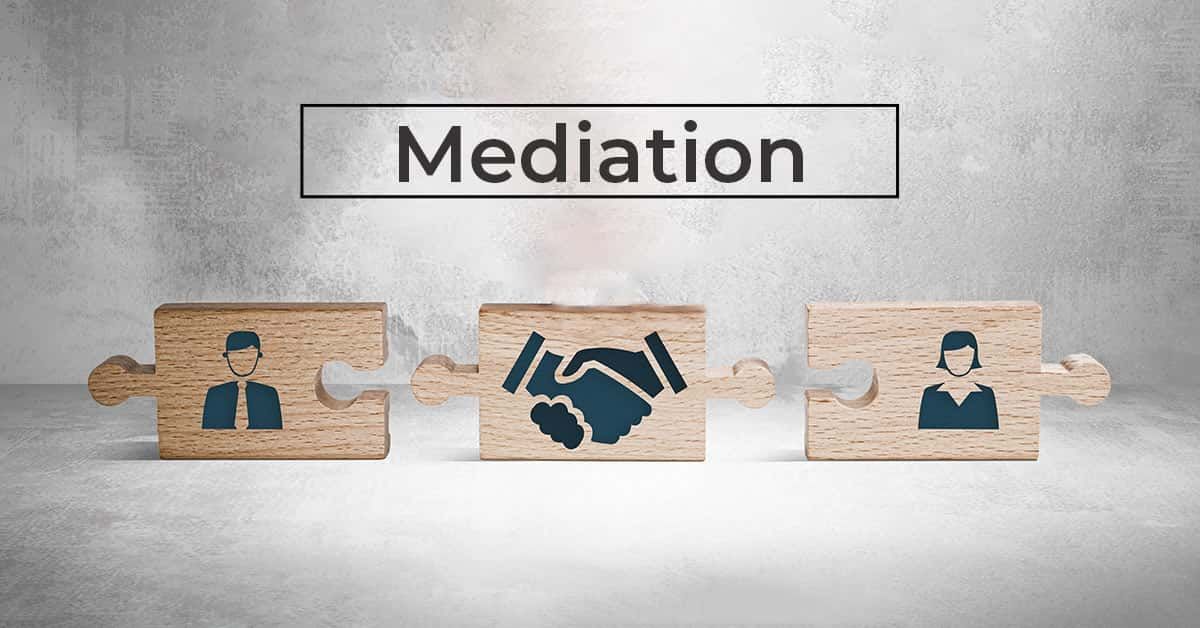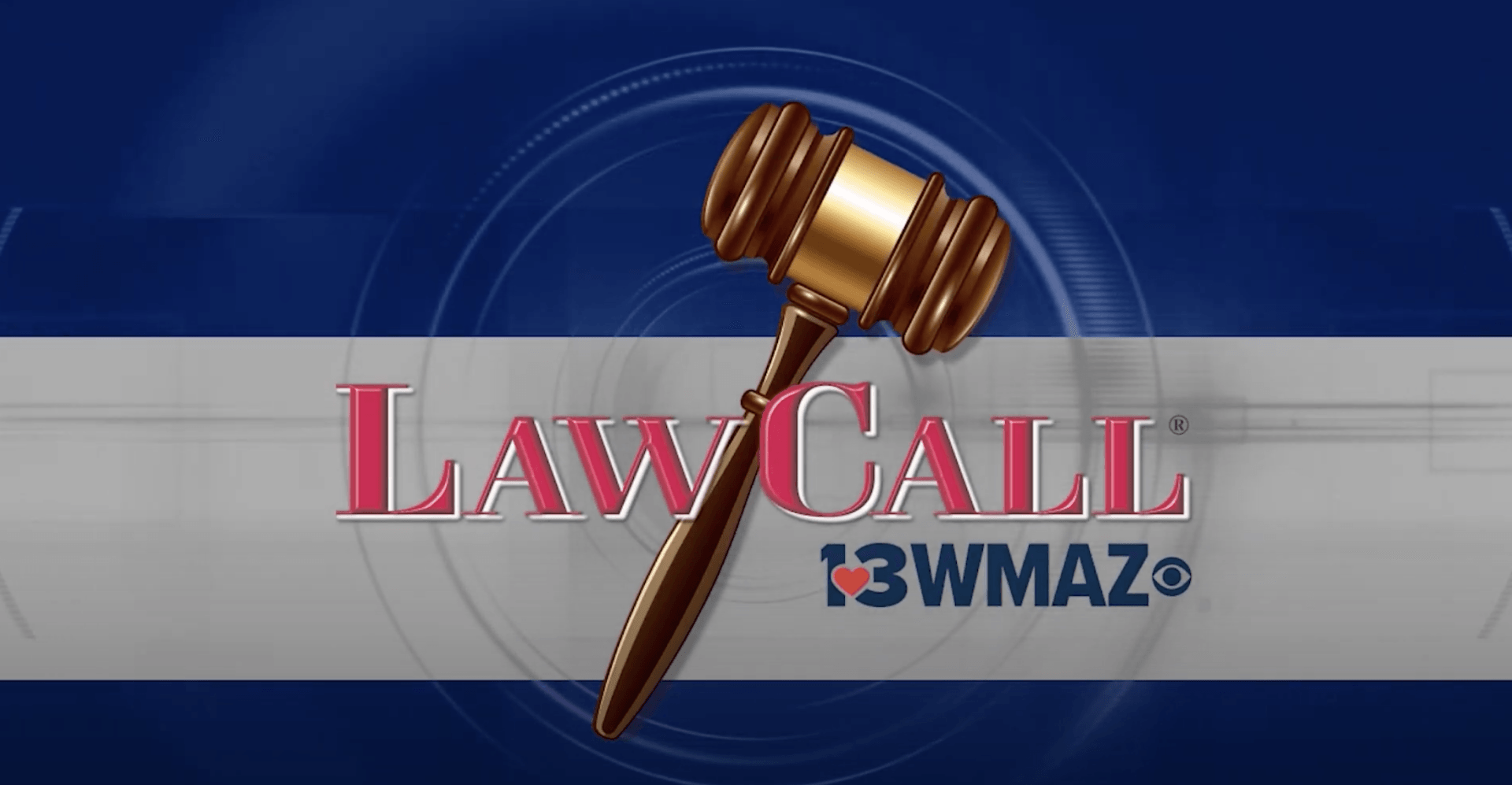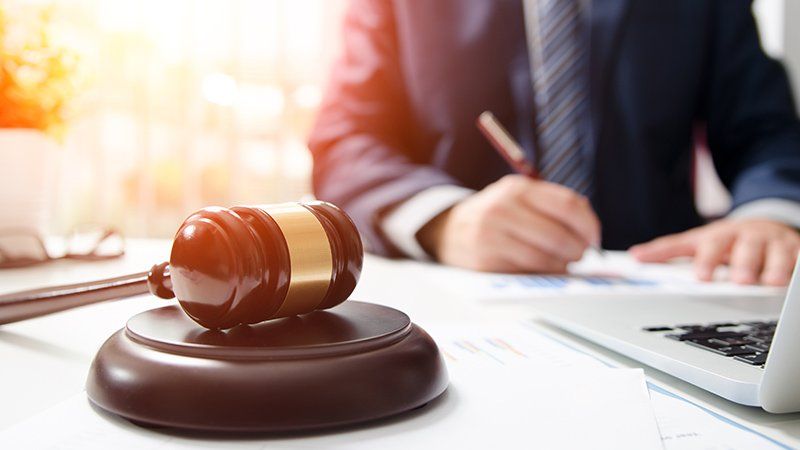Blog

Negotiation is not just about getting what you want—it's about finding common ground, building relationships, and crafting solutions that benefit all parties involved. Whether you're discussing a business deal, resolving a conflict with a coworker, or deciding where to go on vacation with your partner, negotiation is a daily part of life. To master the art of negotiation, we turned to insights from a seasoned mediation expert. With years of experience helping people navigate conflict and reach mutual agreements, they offer timeless strategies that anyone can apply. Here are some of their top tips: 1. Prepare with Purpose Before entering any negotiation, preparation is key. This means understanding: Your goals : What do you really want? What’s non-negotiable? The other party’s goals : What might they value most? What are their constraints? The context : Are there external pressures, deadlines, or relationships to consider? A mediator always enters the room with a clear picture of all stakeholders’ needs, allowing them to guide discussions with clarity and empathy. 2. Listen Actively and Empathetically True negotiation isn’t just about talking—it’s about listening. Active listening involves: Nodding or giving verbal cues to show you’re engaged Summarizing the other person's points to ensure understanding Asking open-ended questions to explore their perspective A mediation expert emphasizes that people are more willing to compromise when they feel heard and respected. 3. Manage Emotions—Yours and Theirs Emotions are natural in negotiation, especially when stakes are high. A skilled negotiator: Stays calm and composed under pressure Recognizes emotional triggers and avoids escalating conflict Helps others regulate their emotions by staying empathetic and non-reactive The mediator’s advice? "Don’t aim to win the argument; aim to win trust." 4. Focus on Interests, Not Positions Positions are what people say they want; interests are why they want them. For example: Position: "I need a 10% raise." Interest: "I want to feel recognized and secure in my role." By uncovering interests, you open the door to more creative solutions. Mediation often involves reframing problems in a way that aligns both parties’ deeper needs. 5. Know Your BATNA BATNA stands for Best Alternative to a Negotiated Agreement . It’s your fallback plan if negotiations fail. Knowing your BATNA gives you confidence and prevents you from accepting a poor deal. The expert reminds us: “A strong BATNA is like a safety net. It keeps you grounded.” 6. Be Willing to Walk Away Sometimes, the best negotiation is the one you don’t finalize. If the terms aren’t fair, or the relationship is too damaged to continue productively, it’s okay to walk away. The key is knowing in advance what your red lines are—and respecting them. 7. Aim for Win-Win Outcomes The best negotiators don’t aim to dominate—they aim to collaborate. A win-win outcome: Strengthens relationships Builds trust for future negotiations Leaves all parties feeling valued Mediators are trained to help people see that mutual benefit is not only possible—it’s often easier to achieve than expected. Need Help Navigating a Dispute? If you're seeking mediation, Bennett Law & Mediation Services is here to support you. Give us a call today to schedule a consultation—let's find a resolution that works for everyone.

Georgia Senate Bill 68 (SB 68) strikes a balance between protecting businesses from frivolous lawsuits and ensuring fairness for everyday Georgians. By reforming the state’s tort system, SB 68 fosters a predictable legal environment that benefits small businesses, large employers, and consumers alike. Why Georgia Needs Tort Reform Georgia has become known for its high-dollar lawsuit awards and litigation-friendly environment, driving up insurance costs for businesses and increasing the price of goods and services for consumers. According to industry reports, business liability insurance premiums in Georgia are among the highest in the Southeast, largely due to excessive lawsuit awards and unpredictable litigation outcomes. This burden trickles down to consumers, who face higher costs for goods and services as businesses offset these rising expenses. Additionally, small businesses—already operating on thin profit margins—are particularly vulnerable to the financial strain of lawsuits, often being forced into costly settlements regardless of merit. By implementing common-sense legal standards, SB 68 helps to ensure that the judicial system is fair, reasonable, and sustainable for businesses and individuals alike. Key Benefits of SB 68 for Businesses Lower Business Costs and Consumer Prices By limiting excessive lawsuit awards, SB 68 helps reduce business liability insurance costs. Lower insurance expenses allow businesses to invest in growth, hire more employees, and keep prices competitive for consumers. With fewer unwarranted legal expenses, businesses can focus on innovation, expansion, and improving employee benefits rather than litigation defense. Protection from Frivolous Lawsuits The bill introduces safeguards against “nuclear verdicts”—jury awards that far exceed actual damages. Preventing manipulative legal tactics, like suggesting arbitrary pain-and-suffering damage amounts, ensures verdicts are based on facts, not emotion. By requiring stricter evidentiary standards, SB 68 discourages the exploitation of legal loopholes that encourage excessive claims. Encourages Job Growth and Economic Investment A fairer legal system makes Georgia more attractive to investors and new businesses, leading to job creation and economic expansion. States with tort reform tend to see higher business confidence and lower unemployment rates. When businesses no longer have to fear runaway litigation costs, they are more likely to invest in hiring, infrastructure, and local communities. Why SB 68 Doesn’t Harm Everyday Georgians While businesses benefit from these reforms, everyday Georgians still maintain their right to fair compensation in legitimate injury cases. The bill introduces common-sense legal standards to prevent abuse of the system, not to block rightful claims. Injured Georgians Still Get Fair Compensation The bill does not cap damages—it simply prevents inflated, unrealistic claims. Georgians can still sue for legitimate medical expenses, lost wages, and actual pain and suffering. The legal system remains open for genuine victims, while reducing incentives for opportunistic or exaggerated claims. Encourages Personal Responsibility Allowing seat belt usage as evidence in car accident cases means that individuals who take safety precautions aren’t penalized unfairly. This helps ensure liability is assigned fairly and accurately, rather than imposing unnecessary costs on businesses and insurers. Ensures Property Owners Aren’t Unfairly Blamed for Crime Businesses and property owners are not automatically liable for crimes they couldn’t reasonably prevent. This helps small businesses avoid unfair lawsuits that could bankrupt them while still holding negligent landlords accountable. By focusing liability on preventable and foreseeable risks, SB 68 ensures fair outcomes for both plaintiffs and defendants. Real-World Examples Where SB 68 Would Have Made a Difference Samson Tours Case Samson Tours, an Atlanta-based business, was sued after a mother and child were struck by another driver at a school bus stop—despite Samson Tours having no direct involvement in the incident. The company was dragged into litigation and saw insurance premiums spike by 400%, illustrating how excessive lawsuits harm small businesses. SB 68’s stricter liability standards could have prevented such an unfair outcome. Coen v. Aptean In this case, a plaintiff pursued an abusive litigation claim seeking excessive punitive damages against his employer. Courts ultimately limited his ability to claim punitive damages without substantial justification. SB 68 ensures that punitive damages are awarded only when warranted, discouraging retaliatory lawsuits against businesses. Conclusion Georgia Senate Bill 68 is a pro-business, pro-consumer reform that ensures fairness in the legal system. It reduces unnecessary costs for businesses while ensuring legitimate victims still receive fair compensation. By preventing lawsuit abuse, SB 68 helps keep prices low, create jobs, and protect Georgia’s economic future—without taking away anyone’s rights. If Georgia wants to remain a thriving, competitive business hub, passing SB 68 is a necessary step toward a fair and balanced legal system for all.

If you’re a business owner, you’ve likely heard about the Beneficial Ownership Information (BOI) filing requirements recently introduced under the Corporate Transparency Act (CTA). This new federal rule is designed to combat financial crimes like money laundering and terrorism financing by increasing transparency in business ownership. However, not all businesses are required to file, and some are exempt from these requirements. Here's what you need to know. What Is the BOI Filing Requirement? The BOI filing requirement, as outlined in the Corporate Transparency Act and implemented by the U.S. Department of Treasury’s Financial Crimes Enforcement Network (FinCEN), mandates that certain entities report information about their beneficial owners. Beneficial owners are individuals who: Exercise substantial control over the entity, or Own or control at least 25% of the ownership interests in the entity. The BOI filings are confidential and will be accessible only to authorized government agencies and financial institutions for specific purposes. Who Must File? The BOI filing requirement applies to most corporations, limited liability companies (LLCs), and similar entities created or registered to do business in the United States. If your business falls into this category, you are likely required to comply with the rule. Who Is Exempt? While many entities are required to file, the law provides several exemptions under 31 CFR § 1010.380(c)(2). Notable exemptions include: Large operating companies : Entities with more than 20 full-time employees, over $5 million in gross receipts or sales, and a physical office in the U.S. Certain regulated entities : Banks, credit unions, insurance companies, and other entities already heavily regulated by federal or state authorities. Tax-exempt organizations : Nonprofits, including 501(c)(3) organizations. Inactive entities : Companies that were in existence for over a year before January 1, 2020, have no ongoing business activity, and meet other specific criteria. For a complete list of exemptions, refer to the regulation directly: 31 CFR § 1010.380(c)(2). Recent Developments: Injunction on BOI Filing As of December 2023, the U.S. District Court for the Eastern District of Texas issued an injunction in the case National Small Business Association et al. v. Janet Yellen et al., temporarily halting the enforcement of the BOI filing requirements. This decision stems from litigation challenging the implementation of the Corporate Transparency Act. Business owners should stay informed about updates, as this injunction may delay filing deadlines or impact compliance requirements. For more information, visit the FinCEN website’s Corporate Transparency Act page or review the court’s decision here. What Should Business Owners Do Now? While the injunction provides temporary relief, business owners should prepare for compliance by: Identifying whether their business is subject to the BOI filing requirement. Gathering information about beneficial owners, including names, dates of birth, addresses, and identification numbers. Monitoring updates from FinCEN and other official sources for changes to the rule or deadlines. Final Thoughts The BOI filing requirement marks a significant shift in corporate transparency in the United States. Understanding whether your business must comply—or qualifies for an exemption—is crucial to avoid penalties. Given the current legal developments, now is an excellent time to consult a legal or compliance professional to ensure your business is ready for whatever comes next. For more detailed guidance, visit FinCEN’s official page on the Corporate Transparency Act or speak with your legal counsel.

Before delving into strategies for protecting your personal assets, it's essential to understand what you're safeguarding them from. Business liabilities are the debts or legal claims that a company faces, while personal assets refer to anything you own outside of your business—such as your home, car, or personal savings. Although business and personal finances may seem like separate entities, business liabilities can potentially put your personal assets at risk. What Are Business Liabilities? Business liabilities can take various forms, including unpaid debts, lawsuits, or damages caused by products or services. As a business owner, you are often personally responsible for your company's liabilities. This means that if your business is sued or fails to cover its debts, your personal assets may be used to settle these liabilities. To mitigate this risk, many business owners turn to strategies like forming a Limited Liability Company (LLC) or a Corporation . These business structures create a legal separation between your personal assets and business obligations, offering a layer of protection should your company face financial or legal issues. Understanding Personal Assets Personal assets include items owned outside the scope of your business, such as real estate, savings accounts, and investments . The goal is to shield these personal assets from business liabilities, ensuring they remain untouchable in the event of a legal claim or financial fallout. Liability insurance is a popular tool that can protect both your business and personal assets from lawsuits. Be sure to review and update your insurance policy regularly as your business grows and evolves. Another protective measure is creating a trust —a legal arrangement where a trustee manages and holds assets on behalf of a beneficiary. By transferring ownership of personal assets into a trust, business owners can often shield these assets from being seized in the event of a business liability. Choosing the Right Business Structure The way you structure your business plays a pivotal role in protecting your personal assets. Below are a few common business structures and how they impact liability protection: Sole Proprietorship A sole proprietorship is the simplest form of business ownership. While easy to set up, it offers minimal liability protection . For example, if you run a bakery and a customer sues you for food poisoning, your personal assets (such as your home or savings) could be at risk, since you are personally liable for the business's debts and claims. Partnership A partnership involves two or more individuals sharing ownership, profits, and liabilities. This structure also exposes personal assets to risk. For example, if one partner in a landscaping business causes damage to a client’s property, both partners could be held liable, putting their personal assets in jeopardy. Limited Liability Company (LLC) An LLC offers greater protection for personal assets. This structure separates business liabilities from personal ones, meaning only the assets owned by the business are at risk in a lawsuit or financial dispute. For example, if your online clothing store faces a legal claim, only the business’s assets would be at stake, not your personal property. Corporation A corporation is a separate legal entity that shields its shareholders from personal liability. Personal assets are generally safe from business-related claims. For instance, if a software company faces a patent infringement lawsuit, the corporation’s assets—rather than the owners’ personal assets—would be at risk. Separating Personal and Business Finances Keeping personal and business finances distinct is key to protecting your assets. Here are some practical tips to help you achieve that: 1. Open a Business Bank Account A dedicated business bank account helps you clearly separate business and personal finances. This not only simplifies tracking business expenses and income but also reinforces the separation of personal and business assets. 2. Use a Business Credit Card Applying for a business credit card allows you to separate business-related spending from personal expenses. This also builds your business’s credit profile while protecting your personal assets. 3. Maintain Accurate Financial Records Careful recordkeeping is essential for both legal and financial reasons. Use accounting software (like QuickBooks or Xero) to track income and expenses, and consider hiring an accountant to help manage your finances. Obtaining the Right Insurance Coverage Insurance is a vital tool in managing business risks and protecting personal assets. Here are some key types of insurance for business owners: General Liability Insurance This covers claims for bodily injury or property damage that occur on your business premises or as a result of your products or services. It helps pay for medical expenses and legal fees associated with lawsuits. Professional Liability Insurance Also known as Errors and Omissions (E&O) insurance, this coverage protects against claims resulting from the professional services you provide. For instance, if a financial advisor makes a recommendation that leads to client losses, this insurance can cover legal defense and settlement costs. Property Insurance This protects your business property, including buildings, equipment, and inventory, against damage or loss. For example, if a fire destroys your office, property insurance can help cover repairs and replacement costs. Workers’ Compensation Insurance This type of insurance covers medical expenses and lost wages for employees injured on the job. It also protects you from lawsuits arising from work-related injuries. Implementing Asset Protection Strategies Beyond choosing the right business structure and insurance, there are proactive steps to safeguard your personal assets: 1. Develop an Asset Protection Plan A comprehensive plan should identify potential risks and outline strategies to minimize them. Consulting with a legal professional is crucial in creating an effective strategy tailored to your specific needs. 2. Utilize Trusts and Retirement Accounts Transferring personal assets into a trust or contributing to a retirement account (such as a 401(k) or IRA) can shield your assets from creditors and legal claims. These accounts are generally protected from lawsuits, making them an effective asset protection tool. 3. Invest in Real Estate Real estate offers both financial growth and protection. Since real estate is typically shielded from creditors, owning property can serve as a long-term asset protection strategy. Regularly Review and Update Your Asset Protection Plan Asset protection is not a one-time task. To ensure your plan remains effective: Monitor legal changes : Stay informed about changes in asset protection laws that might affect your business. Adapt as your business grows : Update your plan as your business expands, acquires new assets, or enters new markets. Evaluate effectiveness : Regularly assess whether your protection strategies are still viable and make adjustments as necessary. Conclusion Protecting your personal assets from business liabilities is a fundamental aspect of owning and running a business. By selecting the right business structure, separating your personal and business finances, obtaining sufficient insurance, and utilizing asset protection strategies, you can ensure your personal wealth remains safeguarded. Regularly reviewing and updating your plan is essential to adapting to business growth and changes in the law. For expert legal guidance on asset protection, business structures, and other legal matters, contact Bennett Law Mediation Services LLC today. Our experienced team is here to provide you with the legal support you need to protect your personal and business assets. Reach out to us to discuss how we can help you navigate the complexities of business law and safeguard your financial future.

Written By: Muskaan Patel Running a business with a partner, be it a friend or family member, can be a rewarding venture. However, the reality is that not all business partnerships are smooth sailing. Conflicting viewpoints on how the business should be operated, divergent ethics, and disagreements on crucial decisions are not uncommon. When disputes arise, it's crucial for business owners to prioritize the protection of assets and the business's reputation. Addressing disputes in a timely and effective manner is essential to safeguarding the interests of the business. Many business owners may hesitate to take the matter to court, fearing potential repercussions on the business or relationships with partners. However, delaying legal action can have more detrimental effects in the long run. One valuable resource for resolving business disputes is a skilled business attorney. These professionals bring astute litigation skills and legal expertise to the table, making them invaluable when navigating complex disagreements. Here are a few reasons why engaging a business attorney is a wise decision: 1. **Protection of Business Assets:** A business's assets are its lifeblood. In times of dispute, it's crucial to ensure that these assets are protected. A business attorney can guide you through the legal processes necessary to safeguard the financial interests and assets of the business. 2. **Preservation of Business Reputation:** The reputation of a business is often as valuable as its tangible assets. Public disputes or legal battles can tarnish the image of a business. An experienced business attorney can help devise strategies to minimize the impact on the business's reputation while effectively addressing the underlying issues. 3. **Timely Resolution of Disputes:** Procrastination in addressing disputes can exacerbate the situation. The longer a dispute persists without resolution, the greater the potential harm to the business. A business attorney can facilitate a swift and efficient resolution, mitigating the negative consequences of prolonged conflicts. 4. **Legal Expertise in Business Matters:** Business law is intricate and varies across jurisdictions. A business attorney brings a wealth of legal knowledge specific to business operations, contracts, and dispute resolution. This expertise is invaluable in crafting effective legal strategies tailored to the unique circumstances of your business. 5. **Mediation and Alternative Dispute Resolution:** Litigation is not always the only option. Business attorneys are adept at employing alternative dispute resolution methods such as mediation or arbitration. These approaches can provide a more amicable and cost-effective way to resolve conflicts without resorting to lengthy court proceedings. In conclusion, while disputes among business partners are inevitable, the manner in which they are addressed can significantly impact the future of the business. Engaging a business attorney early on demonstrates a commitment to a fair and swift resolution, safeguarding the assets, reputation, and overall success of your business. Don't let disputes fester—seek legal guidance to navigate the complexities of business disagreements effectively.

Written by: Muskaan Patel A breach of contract is a violation of any of the agreed-upon terms and conditions of a binding contract. When a party that signs the contract neither performs their contract nor tenders performance, or when the performance is defective, there is a breach of contract. The non-breaching party must prove that there is a breach of contract and that the contract that was breached was legally valid and enforceable. There are two types of breaches of contract: 1) Anticipatory Breach of Contract 2) Actual Breach of Contract An anticipatory breach of contract occurs when the party that signed the contract refuses altogether to perform their promises and signifies their unwillingness to fulfill the contract, even before the time of performance has arrived. By declaring an anticipatory breach, the opposing party may begin legal action immediately, rather than waiting until the contract's terms and conditions are broken. An actual breach of contract occurs when the party that signed the contract refuses to perform the promise on the scheduled date. When one of the parties breaks the contract by refusing to keep the promise when it falls due, it is an actual breach. It's important to note that the information provided here is for general informational purposes only and is not legal advice. If you have specific questions or concerns about contract issues, it is advisable to consult with an attorney who can provide you with guidance tailored to your situation.












